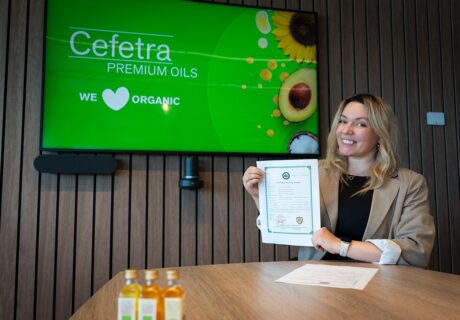In a ground-breaking move for the global agricultural sector, DAABON UK, part of the DAABON group, a global leader in sustainable agriculture, has launched the world’s first carbon-neutral organic palm oil.
While many companies in the palm oil industry are working to comply with the European Union Deforestation Regulation (EUDR), DAABON is going further, aiming not only to meet but to exceed these environmental requirements with its carbon-neutral palm oil. Their new carbon-neutral organic palm oil, produced at the CI Tequendama SAS mill in
According to a Life Cycle Assessment (LCA) using Ecopalma’s carbon footprint estimation tool, harmonised with the ISO 14067 standard, DAABON’s organic palm oil achieves a CO2eq of -977kg per tonne, cradle to gate. This makes it an attractive option for businesses eager to reduce their Scope 3 emissions and demonstrate their dedication to combating climate change.
By comparison, the average carbon footprint of conventional palm oil is +5,340kg CO2eq per tonne, while RSPO (Roundtable on Sustainable Palm Oil) certified sustainable palm oil averages +3,410kg CO2eq per tonne. Even best-in-class RSPO-certified sustainable palm oil still produces +1,470kg CO2eq per tonne. In stark contrast, DAABON’s two mills average just +150kg CO2eq per tonne, with their new carbon-neutral product representing a significant leap forward.
Introducing the first carbon-neutral palm oil represents another huge step forward, as Manuel Davila, MD of DAABON UK and EU, explains:
“Tackling the carbon footprint is the natural next step in making palm oil truly sustainable – and we’re delighted to have achieved this milestone. We genuinely believe that DAABON carbon-neutral palm oil sets the gold standard for sustainability worldwide.
“Our next step is to replicate this at our other refinery, with the eventual goal of making all the palm oil we offer become carbon-negative and climate-positive. Of course, there is still some way to go to cut the emissions associated with onward transport and global shipping – but it’s a fantastic start that will help our customers to cut their Scope 3 emissions and drive significant sustainability improvements.”





